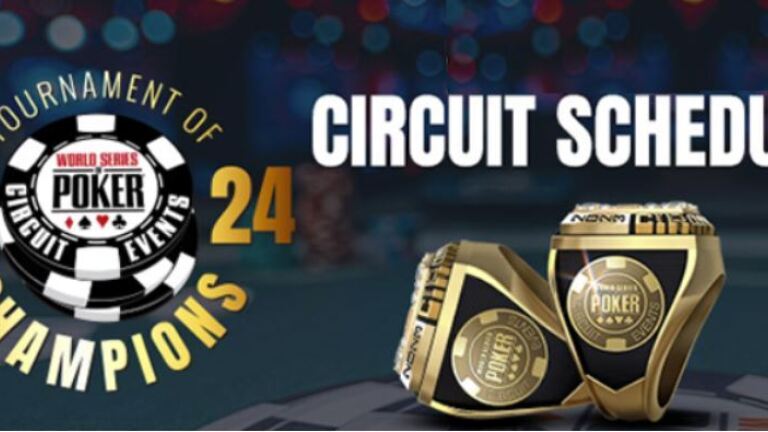If you want to understand more about how rake works and affects your game, check out this article.
Have you heard the catchy phrase from the movie' Rounders': "If you can't spot the sucker in your first half hour at the table, then you ARE the sucker."?

Don't be that guy. Especially not in online poker, where you might play hundreds of precious hands in half an hour. Try to find players who are clearly worse than you.
Good signs are if someone is not sitting with a full stack at the table or playing way too many hands (over 40% of their hands). Also, note when someone is doing anything unusual, for example, limping or using oddly small/large bet sizes. Sometimes it's difficult or takes quite a long time to decide whether an opponent is worth our time and effort in this sense. To gain an edge, you should use some tools to help you. Remember always to use only legal devices and programs supported by poker sites.
One handy tool you'd need is a tracking-software like H2N or HM3. These programs will track all the statistics for you. For example, suppose you buy hand histories, which are available for all. In that case, you are already one step ahead to decide whether a player is a regular or a recreational and if latter, is he bleeding money or just a minimally losing player.
Another great tool is tracking sites, like smarthand.pro or statname.net. You can look up any player by nickname on these websites for all their statistics.
The great thing about these tools is that they have free versions. You can use H2N with some restrictions in terms of statistics and availability, and smarthand also provides free use up to NL25.

Let's say you have your equipment now to make your decision. The table is excellent, you sit in, and the action begins.
Do you know what else to consider? Where to sit exactly? If you have an option, it's advised to sit on the left of the worse player at the table. Why is that? Because the more hands you can play in position against someone who is bleeding money, the easier decisions you'll have and the more action you'll get.
Consider this: you'll have more chances to isolate a recreational and play a HU pot. I don't have to explain how much easier it is to win a hand/realize your hand's equity against one opponent than against various. Besides that, you'll play hands more often in position, which leads to far easier decisions. You might pot control, extract value, and each street gain extra information about your opponent's hand. While out of position, you'd not have all this luxury.
Avoid staying at a table for too long when you are not sure it is worth it. Your hourly income is impacted if you are wasting your time when you could play against worse players. If you are not experienced in focusing on this, consider adding a timer or something that constantly reminds you.
Another mistake to evade is irresponsible game selection, including zoom tables. It's easy to go off track in bad runs. However, it's also true when things are going well. Be careful with thoughts like "Eventually, I'm a winning player; I can afford to be more indulgent." That's not correct. Your profit comes from being strict enough to follow fundamentals at all times. There is nothing wrong if you want to test yourself out in a tough environment, just don't expect that it doesn't affect your winrate.
Playing in a pool with little to no action can be discouraging. Test and find the best time to play. Which are the best days of the week – weekends, etc.? Is there more action during the day or at night? Should you change your schedule or the poker site itself? You might be from the Americas but play on a site from Asia or any other combination of various time zones. Are you playing from the same time zone as most players? It would be best if you thought about these things.
In micro and small stakes, it's rare to lack action at any time of the day. Still, if you struggle, also you can play on multiple poker sites to always have good action and reach the maximum number of tables you can play on.
As a beginner, it is hard to define the maximum number of tables you should play on. Mainly because we are not the same; each of us is blessed with a different tolerance limit. Some can handle more tasks, and some are better off focusing more on fewer tasks. A good rule of thumb is to avoid situations you cannot handle. If you can click the button on time, in every hand, that doesn't mean you can play that many tables. You should have enough time for well-thought decisions and be comfortable. If you stress yourself out and ruin your session by making mistakes, you wouldn't commit otherwise. That's something you want to stay away from. To begin with, try playing at 2-4 tables and see how it goes.
Summary
To sum up, what you should do to increase your winrate with good decisions before even playing poker itself: Plan ahead – preferably the whole month – how many hands/hours you want to play, which days, and when to sit at the tables.
Get some tools to help you and look for soft opponents and player pools. Finally, constantly check yourself – Am I sitting at the right table? Am I still focused on what I want to achieve?
If you follow these tips, your winrate will dramatically increase, and you'll feel more confident. This control over your game will also help you make better decisions in other areas.
That's it for today,
Good luck at the tables!





















